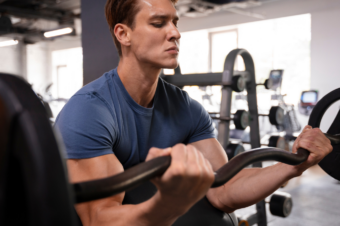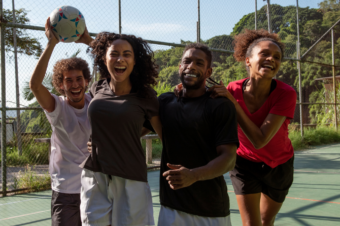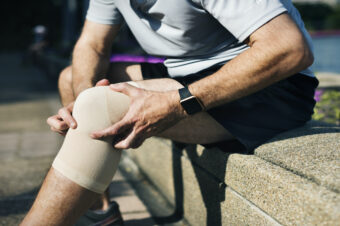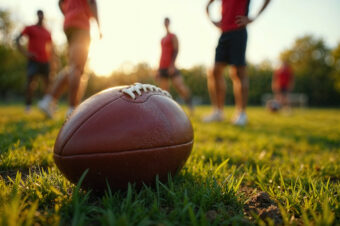GET MENTAL: Proper Focus
CalHiSports Insights September 5, 2014 SportStars 0
Your mental game matters — so what should you do about it?
Do your technical skills matter? Of course. How much time do you spend developing those skills? Most high school/youth athletes spend an average of 10 hours per week practicing and competing at their sport. If you do additional work with specialized technical coaches, add a few more. For some youth athletes, this number is closer to 15 hours per week.
Does your fitness matter? YES! How much time do you spend getting stronger, faster and more agile? Chances are you spend at least a few hours per week specifically training these areas, probably with a qualified athletic trainer or strength and conditioning coach. Exactly how much depends on your sport, whether or not you’re in season and your practice and game schedule.
Does your mental game really matter? It does. It matters a lot. In fact, it determines whether you can leverage all of your technical skills, speed and strength under the pressure of a game. I like to refer to it as, “training insurance.”
When you have a good mental day, your physical skills just work. It holds true with taking a test at school, performing well at work or in all performance endeavors. So … how much time are you spending developing your mental game?
I’m pleased to say that more and more athletes are actively working mental training programs. However, when we compare the number of athletes who do specialized technical and/or strength and conditioning programs, mental training is still far behind. Why is that? Most coaches, parents and athletes won’t argue that it’s important. So why aren’t they doing something about it? To help answer that question, here is an excerpt form a recent Huffington Post article written by a colleague of mine, Dr. Jim Taylor. He says:
“Old attitudes, habits, and methods die hard and new approaches to improving athletic performance are not easily accepted.”
It hasn’t been done in the past, so we must not need it. Taylor argues that we may have to wait for a new generation of coaches who have been exposed to sport psychology to help make it a widely accepted practice. I would add that general education for parents, coaches and athletes would help move this process along. Once people understand the good-to-great model of mental training, rather that the sick-to-well medical model that psychology uses, these attitude tend to disappear.
“The reality is that the best athletes in the world have done pretty darned well without formal mental training,” Taylor wrote.
This is true, however, it doesn’t mean it’s the best way to develop athletes. What about those athletes we’ve seen who have the talent and drive to be the best but just can’t perform with consistency? What if those athletes had a mental training program in addition to their physical training? How many more great athletes would we have?
Taylor adds: “Psychology (mental training) lacks the concreteness of conditioning and physical training.” The abstract nature of mental training makes it hard to “see” and measure mental improvement. That doesn’t mean it doesn’t work. Sport Psychology has been a field of study of over 100 years. There’s lots of scientific backing about what works. Finding a reputable mental training professional with a program is key.
Finally, Taylor says: “Sport psychology can suffer from ‘guilt by association’ with the broader field of clinical psychology that still carries the stigma that only screwed-up people seek professional help.” This is one our biggest and oldest hurdles for potential clients to overcome. Again, once clients understand that mental training helps good athletes become great athletes, it makes good sense to develop their mental game.
Your mental game really does matter. Whatcha gonna do about it??
Erika Carlson is a certified mental trainer and owner of Excellence in Sports Performance in Pleasanton.
SportStars
SportStars Magazine: High School Sports Articles Online SportStars is your go-to source for the very best high school sports articles in California. Player and team profiles, game coverage, health and fitness tips and the largest Camps, Clinics & Combine resource for athletes. We're the story behind the stats.









No comments so far.
Be first to leave comment below.